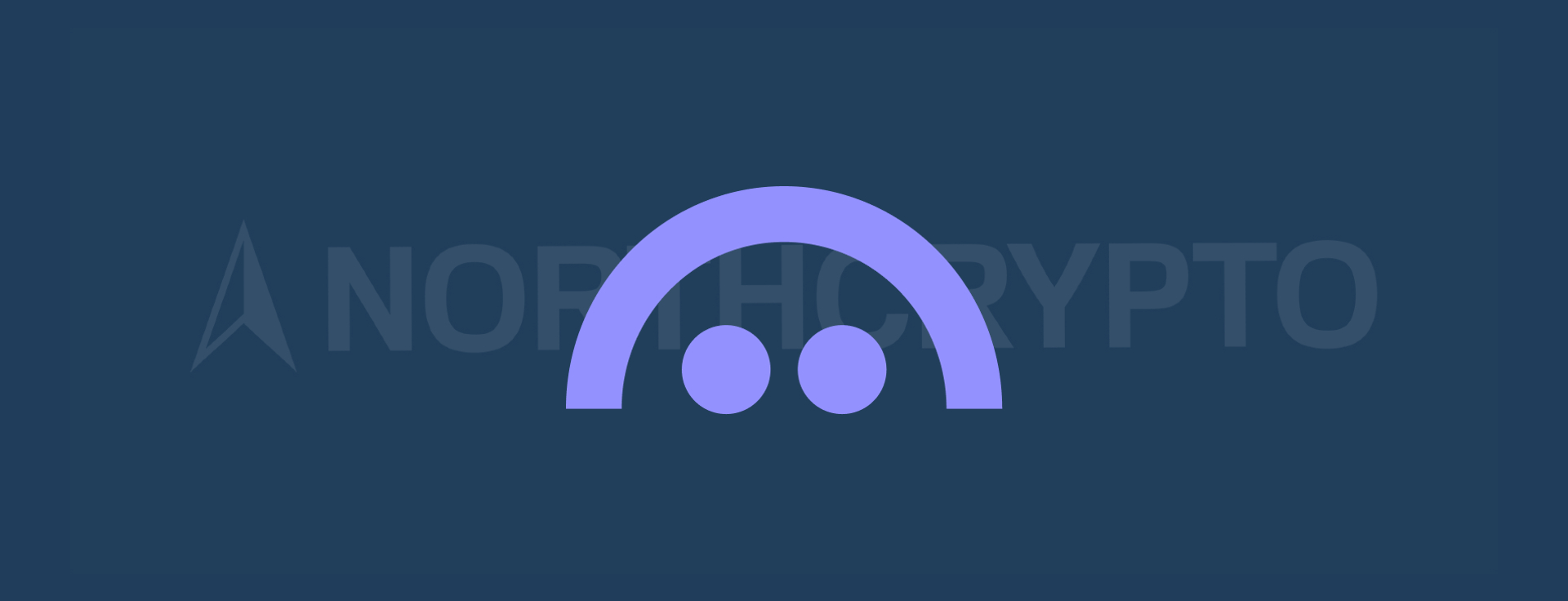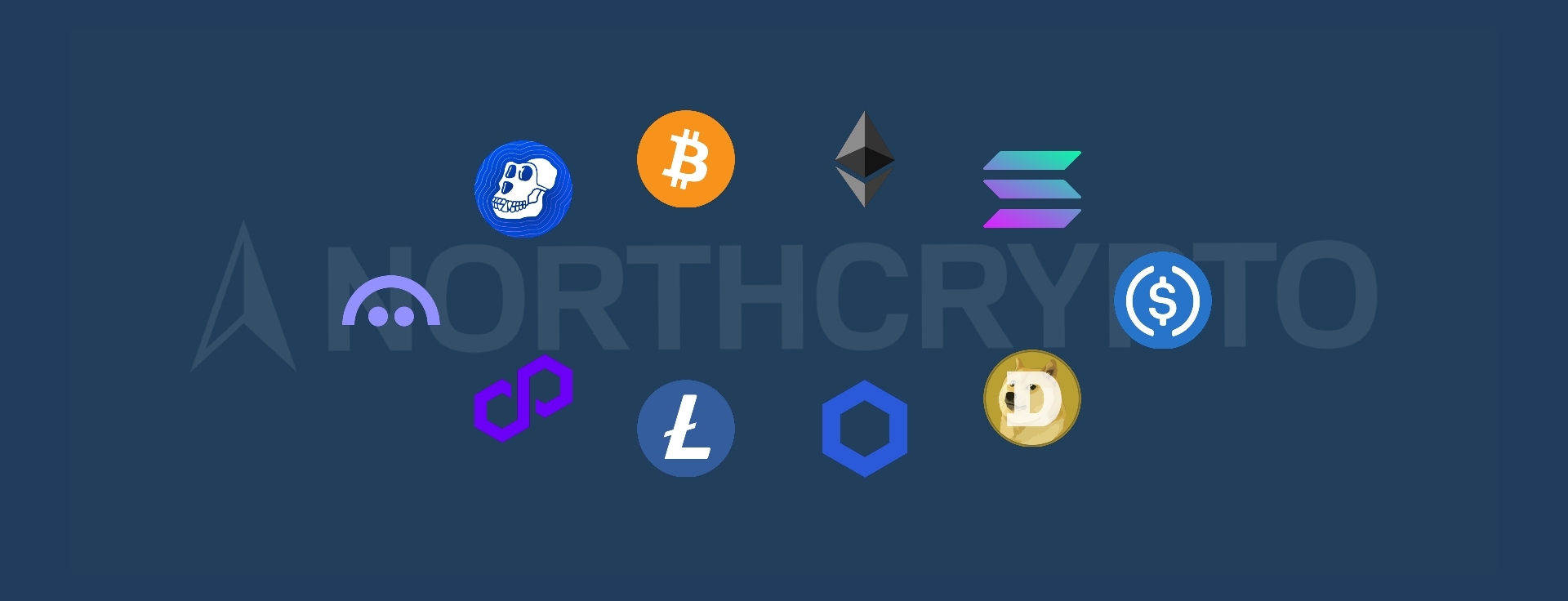
Cryptocurrencies are digital assets based on decentralized blockchain technology and cryptography. Currently, there are numerous different cryptocurrencies on the market, some of which are specifically designed for different uses, such as decentralized finance, smart contracts, or tokenized asset classes. Cryptocurrencies have the potential to transform traditional financial systems by providing innovative solutions to improve efficiency and security. This article tells about the uses of cryptocurrencies and their potential to change many different industries.
What are cryptocurrencies?
Cryptocurrencies are digital assets based on cryptography and blockchain technology. Cryptography ensures transaction security and currency management, while blockchain technology enables decentralized and shared databases, increasing system reliability and security.
The first cryptocurrency, Bitcoin, was released in 2009 during the financial crisis, demonstrating the need for a new type of currency system. The cryptocurrencies that followed Bitcoin, such as Ethereum and Chainlink, have expanded the possibilities for things like smart contracts, tokenization and gaming.
The technology of cryptocurrencies and the innovations based on them are developing rapidly, offering new opportunities and applications in the global economy. The value of cryptocurrencies is determined based on demand and supply, and their areas of use are extensive, covering, for example, payment systems, decentralized financial services and digital identity management. The volatility and growth potential of cryptocurrencies make them interesting investment targets. There are thousands of cryptocurrencies on the market today, many of which aim to solve various real-world problems. Next, let's go through the most common uses of cryptocurrencies.
Cryptocurrencies as an investment target
The most common use of cryptocurrencies today is still their use as an investment. Cryptocurrencies offer investors an attractive opportunity to diversify their investment portfolio outside of traditional asset classes such as stocks and real estate. Cryptocurrencies such as Bitcoin and Ethereum are not significantly correlated with other asset classes, which in turn helps investors balance portfolio volatility. The low correlation and potential for high returns make cryptocurrencies an attractive addition to an investment portfolio, bringing significant diversification benefits.
The investment opportunities for cryptocurrencies have expanded with digitization. Cryptocurrencies represent a new form of digital property. They offer investors the opportunity to benefit from the progress of digitization and related innovations such as DeFi, metaverses, and NFTs. The easy transferability and low transfer costs of cryptocurrencies make them an attractive alternative to traditional financial systems as well.
The attractiveness of cryptocurrencies as an investment target is also supported by their risk-return ratio. Although cryptocurrencies can be highly volatile, their potential returns have proven very attractive over the years. Many cryptocurrencies have experienced huge value increases in a short time, which has naturally also offered investors significant returns.
The exceptional historical returns offered by cryptocurrencies are also related to cryptocurrencies' technological innovations and ability to revolutionize traditional financial systems. Blockchain technology, on which all cryptocurrencies are based, enables decentralized and secure transactions without centralized intermediaries, which reduces costs and increases efficiency. This technological development has created the basis for new types of financial services, such as DeFi and smart contracts, which expand the possibilities of use of cryptocurrencies and increase their attractiveness as an investment.
One of the main reasons for the high historical returns of cryptocurrencies has been their growing acceptance and interest among investors. At first, cryptocurrencies were mostly popular with technology enthusiasts and risk takers, but over time, more and more institutions and private investors operating in traditional markets have started to see cryptocurrencies as a viable alternative investment target.
Payment systems and money transfers
Traditionally, international money transfers are often slow and expensive because they go through multiple intermediaries such as banks and payment service providers. With the help of cryptocurrencies, money transfers can be made directly from one user to another, which reduces costs and speeds up the process. For example, transfers using Bitcoin and Ethereum can happen in minutes, and transaction costs are often a fraction of the costs of traditional systems. In addition, cryptocurrencies offer greater transparency and security, as all transfers are recorded in a blockchain that is publicly viewable and difficult to manipulate. This makes cryptocurrencies an attractive option for both individuals and companies who want to make their international money transfers more efficient.
Cryptocurrencies enable small payments and microtransactions that are not economically viable with traditional payment methods. Traditional payment services often charge fixed processing fees, which can make small payments prohibitively expensive. However, with the help of cryptocurrencies, these costs can be minimized, making microtransactions economically viable. This is especially useful when paying for online content and digital services.
For example, the Lightning Network, a second-layer solution (layer 2) built on top of Bitcoin's main network, enables almost immediate and low-cost microtransactions. This opens up new opportunities, especially in developing countries, where traditional banking services are often difficult to access. In addition to this, the use of smart contracts on the Ethereum platform enables automated and pre-programmed payments, which can further enhance the delivery and use of services.
The use of cryptocurrencies in payment systems is not limited to transfers between consumers, as they can also enhance transactions and supply chains between companies. For example, in the management of supply chains, cryptocurrencies and blockchain technology offer transparency and real-time monitoring that reduce fraud and errors. In addition, it is possible to create new business models with the help of cryptocurrencies. The global reach of cryptocurrencies allows companies to expand their customer base without having to worry about exchange rate fluctuations or high transfer costs. In the future, the innovative solutions of cryptocurrencies and blockchain technology can revolutionize economic structures and enable an even more efficient and inclusive global economy.
DeFi
DeFi (Decentralized Finance), is one of the most significant uses and innovations of cryptocurrencies. Smart contracts serve as the most central pillar of DeFi. A smart contract is a contract programmed into the blockchain that executes itself automatically when predetermined conditions are met. This technology enables a wide range of financial services without traditional centralized intermediaries or third parties such as banks. Along with smart contracts, cryptocurrencies are definitely one of the most important pillars of DeFi. Without cryptocurrencies, there would be no DeFi services either.
DeFi applications offer users the opportunity to utilize financial services directly on the blockchain. For example, offering and receiving a loan can be done entirely through a peer-to-peer network, which eliminates the need for creditworthiness assessments and long processing times. In addition, DeFi applications enable transactions to be completed quickly and cost-effectively without the high costs and delays of traditional financial institutions.
The most central advantages of DeFi include openness and transparency. All transactions and contracts are publicly visible on the blockchain, which reduces the risk of fraud and increases the trust of the various parties in the system. In addition, DeFi applications are available around the world, making it possible to provide financial services even to those who previously did not have access to traditional banking services.
DeFi's growing popularity and continuous innovation promise a significant change in the financial market. Although the DeFi sector still faces challenges such as lack of regulation and security issues, its potential to transform financial services is huge. This makes DeFi one of the most interesting and promising areas in the exploitation and development of cryptocurrencies and blockchain technology.
Tokenization of assets
Real-world asset (RWA) tokenization is one of the most promising uses for cryptocurrencies. Tokenization enables traditionally weak assets to be divided into smaller, easily tradable parts. With tokenization, asset classes such as real estate, stocks, and valuables can be turned into digital tokens that represent a share of that asset. This process not only increases liquidity, but also makes investing more accessible to a wider audience than before.
Real estate tokenization is a prime example of how cryptocurrencies can revolutionize traditional asset markets. Traditionally, real estate investing has required significant capital and has been accessible only to wealthy investors. With tokenization, real estate can be divided into smaller parts that can be bought and sold digitally. This makes real estate investing possible even for small investors who can only buy a fraction of the real estate. Tokenized properties can be traded quickly and efficiently on the blockchain, which increases market liquidity and flexibility.
Tokenization of shares opens up completely new opportunities in the stock market. With tokenized shares, it is possible to trade in decentralized exchanges, which reduces transaction costs and trades take place in real time. This also enables shares to be divided into even smaller parts, which makes them more accessible to small investors than before. In addition, tokenization brings transparency and security, as all transactions are recorded in the blockchain.
Tokenization of valuable objects such as art offers a new way to own and invest in rare objects. Traditionally, art ownership has been the exclusive preserve of the wealthy, but with tokenization, a work of art can be divided into fractions that can be bought and sold by anyone. This not only increases liquidity in the art market, but also enables a wider group of owners to participate in benefiting from a possible increase in value. Tokenization can also help guarantee the authenticity and ownership history of works, which reduces the risk of fraud and forgery, for example.
When talking about asset tokenization, Chainlink, the largest provider of oracle solutions in the cryptocurrency market, must also be mentioned. Chainlink's decentralized oracles bring reliable and verified information to blockchains. This is especially important for tokenization, where the values and other information of real-world assets such as real estate or stocks must be accurately and timely updated to the blockchain. Chainlink can be used to ensure that this information is reliable and cannot be manipulated. The value of tokenized assets can also constantly change depending on the market situation. Chainlink delivers real-time price data from various markets, enabling up-to-date valuation of tokenized assets. Indeed, Chainlink can be seen to significantly improve the reliability, efficiency and security of tokenization processes by providing up-to-date and accurate information that is essential for tokenizing real-world assets.
Tokenization is still a developing technology and its full effects are just coming to the fore. However, the possibilities of tokenization are enormous and in the future tokenization can significantly change the way different assets are owned, managed and traded globally.
Smart contracts and decentralized applications (DApp)
Smart contracts are programs that automatically perform pre-defined actions when certain conditions are met. Smart contracts play a central role in decentralized finance and decentralized applications, as they provide automation and security that traditional systems cannot provide as effectively.
Ethereum is the largest and most well-known smart contract platform on the market. Ethereum enables the execution of even complex smart contracts safely and efficiently. Over the past few years, Ethereum has been joined by other smart contract platforms, the most famous of which can be considered Solana, which can be found in Northcrypto's selection.
Decentralized applications (DApps) are applications that run on top of the blockchain, utilizing its decentralized infrastructure. Decentralized applications differ from traditional applications in that they do not depend on a single centralized server, but operate in a peer-to-peer network. This decentralized structure increases the security and reliability of decentralized applications compared to traditional applications.
In summary, smart contracts and decentralized applications have revolutionized the way we use and utilize digital technology. Smart contracts offer a unique level of automation and security, enabling even complex financial operations to be performed without centralized intermediaries. This is particularly significant in decentralized finance, where traditional financial mechanisms can be replaced by fully decentralized and open systems.
Decentralized applications that run on top of blockchains offer more security and reliability compared to traditional centralized applications. Together, these technologies create the basis for a new kind of decentralized internet, where users can use financial services and various digital services more efficiently and securely than ever before.
NFTs, games and virtual worlds (metaverse)
NFTs (Non-Fungible Tokens) are unique digital assets created on top of the blockchain that can represent any real-world asset, such as artwork, collectibles, or digital assets. This enables digital ownership and exchangeability in a way that was previously impossible. NFTs offer new ways to own and exchange digital objects, fundamentally changing the concept of gaming and digital assets.
Additionally, NFTs allow artists, developers, and content creators to receive direct compensation for their work without intermediaries, increasing their financial freedom and opportunity. In the future, NFTs and cryptocurrencies will likely become more closely integrated into the digital economy, offering new innovative solutions and business opportunities.
Cryptocurrencies offer a versatile way to handle in-game assets and purchases. Traditionally, in-game currencies and items have been managed on platforms centrally controlled by game developers. Cryptocurrencies, however, allow players to buy, sell, and exchange in-game items and currencies safely and efficiently using blockchain technology. In addition, financial systems based on cryptocurrencies offer players the opportunity to earn real value from playing, for example through play-to-earn models. What this means in practice is that players can earn cryptocurrencies by playing and participating in the game's ecosystem. This creates new earning opportunities and engages players more deeply in the game, while bringing new dimensions to game development and innovation.
Cryptocurrencies and blockchain technology are key factors in the background of various virtual worlds, i.e. metaverses, as they form the basis of the economic system of virtual worlds. In practice, metaverses are often virtual worlds based on blockchain technology, where cryptocurrencies serve as instruments of value exchange and trading. In these virtual worlds, users can buy, sell and earn cryptocurrencies and NFTs, which can represent things like different objects or plots of land. The blockchain's decentralization guarantees data safety and reliability, making metaverses less vulnerable to hacking.
Currently, the most popular blockchain on which various metaverses are created is Ethereum. Ethereum is the largest ecosystem in the cryptocurrency market, on top of which it is possible to build not only metaverses, but also, for example, DeFi applications, NFTs, as well as various smart contracts and cryptocurrencies.
In conclusion, cryptocurrencies, NFTs and blockchain technology will fundamentally change the way we deal with digital assets, gaming and virtual worlds. They offer new opportunities for ownership, trading and financial activity, making the ownership and management of digital assets easier, safer and more transparent.
Summary
The uses of cryptocurrencies have expanded from traditional payment systems to include a wide range of financial services, asset tokenization, smart contracts and decentralized applications. Cryptocurrencies such as Bitcoin and Ethereum are popular investments due to the diversification benefits and high return potential they offer. They also enable more efficient money transfers and microtransactions than traditional systems.
Decentralized finance offers users, using smart contracts, access to decentralized financial services without third parties such as banks. Tokenization of assets increases liquidity and accessibility, enabling, for example, real estate and shares to be divided into smaller parts. NFTs and metaverses, on the other hand, open up new ways of owning and exchanging digital objects, creating new earning opportunities for both players and content producers.
Together, these technologies are revolutionizing the digital economy, offering innovative solutions and new business opportunities. The development of cryptocurrencies and related innovations continues to be rapid, and their impact on society and the economy will probably grow even more in the future.
Mikko Soon
Head of Northcrypto Private
Last updated: 27.06.2024 14:00





